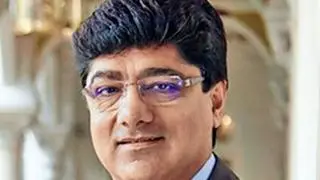With the economy witnessing a slowdown, festive season sales across sectors like electrical appliances, automobiles and FMCG put up a mixed show this year.
“The run-up (in Q2) to the festive season this year has definitely been subdued with weak consumer sentiments. The Diwali month of October has witnessed a pick-up. But a lot of this was driven by high discounting by various players/retailers. The underlying economic and consumer sentiment continues to be soft,” Anuj Poddar, Executive Director, Bajaj Electricals, told BusinessLine .
Kamal Nandi, Business Head and Executive Vice President, Godrej Appliances, also said that owing to the overall muted sentiments wrought by the current economic slowdown, Godrej Appliances witnessed a subdued response this festive season. But sales picked up in the days leading up to Diwali, he said.
Some of Godrej Appliances’ premium products have shown good traction, especially its frost-free range and fully automatic washing machines, he added.
“Overall, we expect single-digit growth of 5-7 per cent for the industry over the same period last year. Metro markets have done better than the rest. Also, e-commerce and large format stores have done better,” he said.
Anil Talreja, Partner, Deloitte, said that brick & mortar sales experienced an overall 30 to 40 per cent dip in sales and close to 50 to 60 per cent decline in footfalls during the festival season, whereas online sales witnessed a huge growth of 25 to 30 per cent vis-à-vis the previous year (September 29 – October 4). “The two major online retailers in India together accounted for $3-3.5 billion sales during this period. However, net sale would be 15-20 per cent lower taking into account returns,” said Talreja. “The tepid response to physical retail has been primarily due to the consumption slowdown resulting from the cash crunch, and the shift to online retail on the back of attractive finance schemes. Consumers are holding back on splurging on discretionary shopping and concentrating only on need-based spending,” he added.
The consumer electronics scenario
But it’s not all gloom and doom. Brands like Panasonic India have seen a surge in consumer sentiments, recording strong growth driven by its home appliances segment this festive season, according to the company’s President & CEO Manish Sharma. It has seen an overall 10-12 per cent growth across categories over last year’s festive season sales, said Sharma.
“In the premium segment, our new four-door side-by-side model refrigerator of 550 litres has seen robust demand, while in the mid-segment, our direct cool refrigerator models witnessed steady traction, with tier-2 and tier-3 markets fuelling the demand,” he said.
As for Super Plastronics Pvt Ltd (SPPL), the exclusive brand licensee for Kodak TVs and Thomson TVs in the country, it has sold more than 1.5 lakh units this festive season, compared to the 73,000 units it sold during the year-ago period, said Avneet Singh Marwah, CEO, SPPL.
Last year, festive season sales of consumer durables in the southern region were impacted by floods in Kerala, said Hetal Gandhi, Director, CRISIL Research. Online sales grew pan-India because of the heavy discounts offered, and this impacted offline sales, which remained flat, she said. “This year, with consumer sentiment tapering further, players had increased their promotional offers and provided various financing schemes to attract customers. This resulted in a growth of 6-8 per cent this festive season, led by smartphones. Brands provided similar discounts in both offline and online channels, which led to growth in the offline channel too,” said Gandhi.
In the travel sector, there was some growth in the outbound segment while domestic bookings were subdued or flat compared to last year. MakeMyTrip witnessed about 40 per cent growth in international bookings, while domestic bookings showed a similar booking pattern as last year. “We noticed an uptick in the number of outbound travellers during the festive season – and this can be attributed to airfares that were 5 per cent lower this year.”
In the FMCG sector, Jyothy Labs’ Joint Managing Director, Ullas Kamath, said that this year’s festive season sales were higher than in the previous year. “Growth has been in double-digits in urban markets, and especially, modern trade segments. Onam sales in Kerala were up substantially this year,” he said.
An ITC spokesperson said its specially-crafted festival packs for its brands like Fabelle, Sunfeast Dark Fantasy and B Natural “have received encouraging response from consumers this year”.
Postive sentiments in the automobile sector
In the automobile sector, sentiments seem to be mostly positive across brands.
For Maruti Suzuki, the country’s largest carmaker, retail sales between Navratri and Bhai Dooj went up, compared to the same period last year, especially after Dhanteras, said Shashank Srivastava, Executive Director, Marketing & Sales, Maruti Suzuki India. Its initiatives like attractive promotional offers, tie-ups with banks for easy loans, and new launches like S-Presso and XL6 helped drive the positive sentiment and boost sales, he said.
The overall sentiments have improved during the festive season, said Srivastava.
A Tata Motors spokesperson said that thanks to its festive offers, the company posted 50 per cent more retail sales during the Diwali period this year, compared to the same period last year. The day of Dhanteras alone saw a retail growth of 49 per cent over last year, the spokesperson added.
A Mahindra spokesperson said that the company delivered more than 13,500 vehicles on the day of Dhanteras this year “which was substantially higher than last year”.
At the luxury end of the spectrum, market leader Mercedes-Benz India’s sales numbers during the festive season was on par with the previous year, the company said. It delivered 600 cars across markets on Dhanteras, of which 250 were delivered in Delhi and NCR, the company said. However, overall auto sales increased only in single digits.
“We cannot definitively conclude that the sluggishness in the market has ended. To reach that conclusion, we need to observe the market movements for the next couple of months. Factors like the cost of acquisition, confusion over (the shift from) BS-4 to BS-6, and tighter lending norms still remain out there. We are carefully monitoring the market and taking measures accordingly,” said Maruti’s Srivastava.
According to Harsha Razdan, Partner and Head – Lifesciences and Consumer Markets, KPMG in India, sentiments in the retail sector could be slightly slow now, but sales continue to be driven by rural India. “The industry has seen slowdown relative to the last fiscal, as rural slowdown is higher. Therefore, companies having higher exposure to rural consumption may face a slight pushback. However, rural markets still continue to grow faster than urban. We are sure that as the economy continues to recover, this will only accelerate faster.”








Comments
Comments have to be in English, and in full sentences. They cannot be abusive or personal. Please abide by our community guidelines for posting your comments.
We have migrated to a new commenting platform. If you are already a registered user of TheHindu Businessline and logged in, you may continue to engage with our articles. If you do not have an account please register and login to post comments. Users can access their older comments by logging into their accounts on Vuukle.